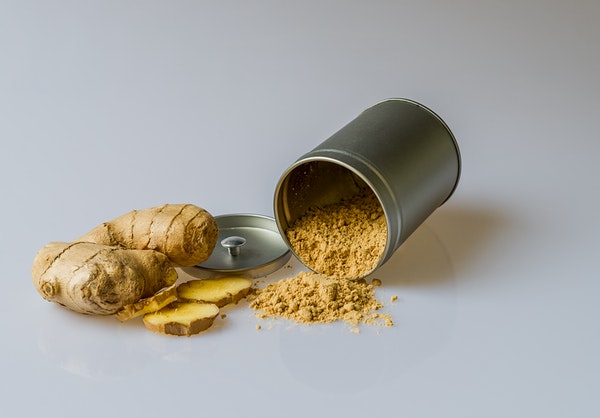
Photo by Pixabay on Pexels.
If you go through the spice cabinets of an average home, you are most likely going to find ginger. It is a staple in many recipes, but it has also been commonly used as a natural health supplement. Whether it’s being used as an addition to your favorite meal or for medicinal purposes, you’re sure to benefit from ginger’s healing effects.
What is ginger?
Ginger is a tropical plant originating from Southeast Asia. The plant can grow up to 3 feet tall and produces beautiful flowers, but the root is the part we commonly use. The root can be yellow, red, or white and can be consumed fresh, dried, as tablets, capsules, and liquid extracts.
Health Benefits
Ginger has more than 400 chemical compounds, but researchers believe that the gingerol compounds are the main ones responsible for the root’s distinct health benefits. Similarly, gingerol gives it its smell and favor. Gingerol has amazing properties that can help the body in many different ways, such as…
- Settles an upset stomach. The chemical compounds in ginger are believed to ease stomach pain and help digestion. A study found that taking 1.2 g of ginger before a meal can help speed up the digestion process, helping prevent indigestion, bloating, nausea, and vomiting. Further research has revealed that it is a safe, natural, and effective way to reduce nausea while pregnant, in recovery from surgery, and during chemotherapy when taking certain medications is dangerous.
- Reduces inflammation. Ginger can be taken as a supplement for rheumatoid arthritis and osteoarthritis (two painful conditions that cause joint damage). The root works as an anti-inflammatory, so it can significantly ease joint pain.
- Lowers blood sugar. Incorporating ginger into your diet can help improve blood sugar levels and lower the risk of developing type 2 diabetes. A study discovered that people with type 2 diabetes who took 1600 milligrams of ginger powder for 12 weeks had improved insulin sensitivity, lower triglycerides, and lower total cholesterol when compared to the control group.
- Reduces cancer risk. Research has found that gingerol may have cancer-fighting abilities. More specifically, it helps in the prevention and treatment of gastrointestinal cancers. The high antioxidant content in the root is responsible for fighting off cancer cell growth.
- Relieves menstrual cramps. When trying to soothe period pain, ginger is right up there with the likes of pain medications like Advil. A study found that women who took 250 mg ginger capsules four times per day experienced the same pain relief as those who took 400 mg of ibuprofen capsules four times per day.
Including Ginger in Your Diet
There is no shortage of ways to implement ginger into your diet. It works in your tea, entrees, condiments, and even cookies! When purchasing it for your personal use, it is healthier to use the fresh root instead of the powder, but both will be beneficial. If you buy fresh, you want the root to be smooth and firm with no shriveling or mold. If you use the spice, be aware that the taste and smell will be different from fresh ginger and it will be concentrated, so you will likely need to use less. A fourth of a teaspoon of powdered ginger is equal to one teaspoon of fresh ginger.
For some extra ideas, you can use ginger in:
- Marinades for meat and fish
- Stir fry
- Salad dressing
- Soups
- Smoothies
- Sweet potato and carrot dishes
- Tea
- Cocktails
- Baked desserts
Got Medicare Questions?
We hope that this information on ginger is useful to you.
Let us help you answer your questions so that you can get back to the activities that you enjoy the most.
Call (888) 446-9157, click here to get an INSTANT QUOTE, or leave a comment below!
See our other websites:

